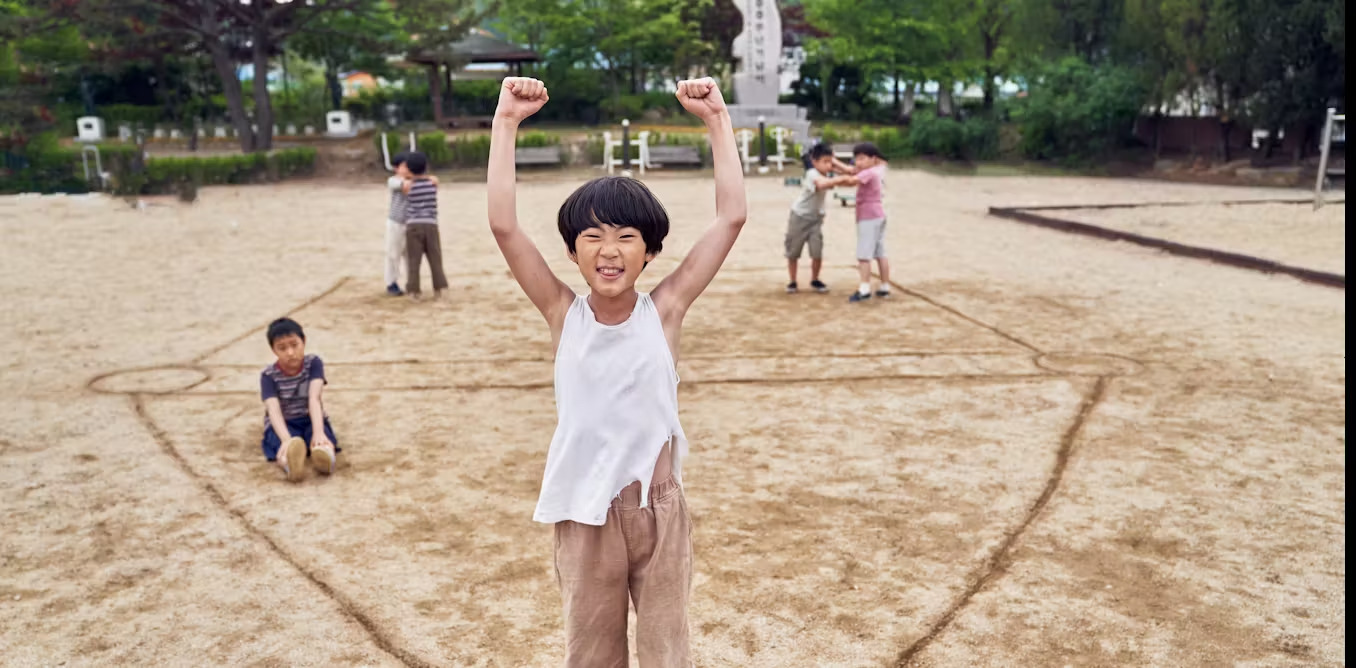
The release of the second season of Netflix's South Korean series "Squid Game" has reignited debates about its impact on children.
Reports from Türkiye and beyond show that children are replicating the violent games featured in the show, raising serious concerns among parents, educators and psychologists.

"Squid Game" depicts childhood games with deadly consequences for the losing participants. These games, such as tug-of-war and "Red Light, Green Light," are being adapted by schoolchildren, who impose physical punishments on the losers.
According to development psychologist Irmak Kerimoglu, children who watch the series struggle to understand the broader context of financial desperation that drives the adult characters in the show. Instead, they normalize violence as an acceptable consequence of losing a game.
Kerimoglu explains, "In the series, participants justify harm by saying, 'I'm not killing them; the game's rules dictate this.' For children, this logic translates differently. They perceive causing harm as acceptable if it occurs within the structure of a game, making it easier to justify acts of aggression."

Incidents of violence tied to "Squid Game" have been reported in schools across Türkiye.
Schools and experts have also noted that children's fascination extends to the show's costumes and toys. In one recent case in Istanbul, a young person dressed in a "Squid Game" costume caused panic at a bus stop by wielding what was described as a toy weapon.
Parents and educators have been urged to limit children's exposure to related merchandise, which Kerimoglu warns could negatively affect their mental development.

This is not the first time concerns have been raised about the series. Following the release of the first season in 2021, schools in Belgium, England, and the United States reported children mimicking violent games.

Schools in Türkiye are taking action to address the issue. Bahcesehir Koleji recently addressed parents, emphasizing the risks of violent games inspired by the series.
The letter stressed the importance of monitoring children's digital consumption and promoting the controlled use of technology.
"Challenges and violence-themed games inspired by the series pose significant risks to children and adolescents," the statement read.
Experts advise that both parents and educators have a critical role in preventing the normalization of violence among children.
Monitoring children's access to age-inappropriate content and fostering open conversations about its potential harms are essential steps in mitigating these risks.